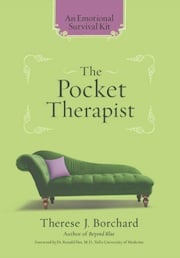
This question is so crucial to how we treat persons suffering from both addiction and mental disorders, and especially how we deal with those with dual-diagnoses.
Just after I was discharged from Johns Hopkins Hospital, a friend of mine strongly encouraged me to go away to a halfway house of sorts for three or more months … where they treat addicts primarily, and some persons battling mental illness … in order to allow time to heal.
I ran it by my doctor. Did she think three months of AA meetings and yoga and group therapy would pull me out of my depression? Her response was interesting, and one I remember in treating both my bipolar disorder and addiction:
“I don’t know of any facility other than a hospital that is equipped to treat a mental illness like yours. Being removed from your environment for three months or longer is very helpful for a person struggling with an addiction because it is primarily a behavioral disorder. They need to create new habits (healthy ones), and break all kinds of self-destructive patterns. But being away from your family, I’m gathering, would only make you feel more isolated. And it won’t be able to make your medication work any more quickly or be able to find the right combination faster. You are already doing whatever you can do to get well. In my opinion, it’s just a matter of finding the right drug combo until you’re stable enough to do even more cognitive work to recover completely.”
Here are some excerpts from the article. To read the entire piece, click here.
Many people think they know what addiction is, but despite non-experts’ willingness to opine on its treatment and whether Britney or Lindsay’s rehab was tough enough, the term is still a battleground. Is addiction a disease? A moral weakness? A disorder caused by drug or alcohol use, or a compulsive behavior that can also occur in relation to sex, food and maybe even video games?
As a former cocaine and heroin addict, these questions have long fascinated me. I want to know why, in three years, I went from being an Ivy League student to a daily IV drug user who weighed 80 pounds. I want to know why I got hooked, when many of my fellow drug users did not.
A bill was introduced in Congress this spring to change the name of the National Institute on Drug Abuse (NIDA) to the National Institute on Diseases of Addiction, and the National Institute on Alcoholism and Alcohol Abuse (NIAAA) to the National Institute on Alcohol Disorders and Health. In a press release introducing the legislation, Sen. Joseph R. Biden Jr. (D-Del.) said, “By changing the way we talk about addiction, we change the way people think about addiction, both of which are critical steps in getting past the social stigma too often associated with the disease.”
But opinion polls find weak support for the concept of addiction as a disease, despite years of advocacy by such agencies as NIDA and NIAAA and by recovery groups. A 2002 Hart poll found that most people thought alcoholism was about half disease, half weakness; just 9 percent viewed it wholly as a disease.
So what does science have to say? Addiction research has advanced dramatically since my high school years in the early 1980s, when I began using marijuana and psychedelics, then cocaine, in the hope they would relieve my social isolation. My progression from psychedelics to coke was fed by a definition of addiction that still causes widespread misunderstanding. In 1982 — around when I first tried cocaine — Scientific American published an article claiming it was no more addictive than potato chips. This was based on the fact that cocaine users, unlike heroin users, do not become physically sick when they try to stop taking their drug.
Addiction, by this reasoning, is a purely physiological process, one that results from drug-induced chemical changes in the brain and body. Over time, with heroin and similar drugs, the article explained, the user develops tolerance (needs more of the drug to experience the same effect) and eventually becomes physically ill if he doesn’t have access to an adequate dose. Addiction, by this theory, is primarily an attempt to avoid physical withdrawal.
* Click here to subscribe to Beyond Blue and click here to follow Therese on Twitter and click here to join Group Beyond Blue, a depression support group. Now stop clicking.

